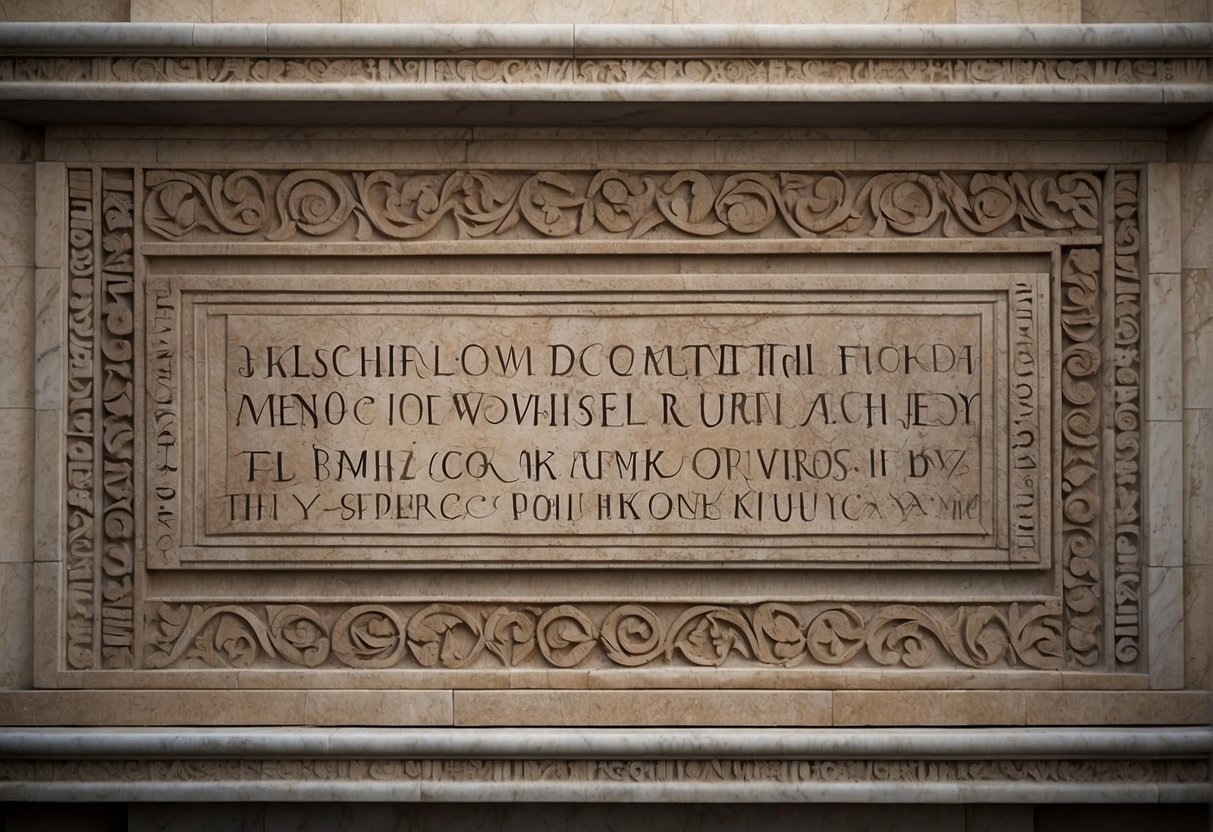Unveiling The Forgotten Legacy: Echoes Of Antiquity In Old Roman Names
As we wander through the labyrinthine streets of ancient Rome, it's impossible not to be captivated by the echoes of a bygone era. The legacy of this venerable civilization continues to resonate throughout the modern world, its impact palpable in the countless names that have been bestowed upon its people. From the storied Roman gods and goddesses to the humblest of ordinary folk, the names of old Rome are a treasure trove of historical significance, each one whispering secrets of a forgotten past.
Old Roman names, like the artifacts they adorn, hold a certain allure, a testament to the ingenuity and craftsmanship of a people who elevated the mundane to the sublime. A glance at any reputable genealogical database reveals a staggering array of surnames, each one a window into the rich cultural heritage of ancient Rome. From the familiar monikers of Caesar and Cicero to the more esoteric names like Vesper and Lyra, these names speak of a people who not only respected their ancestors but also proudly claimed their legacy.
As we delve into the world of old Roman names, it becomes apparent that the art of naming was an intricate and deliberate process, influenced by a complex interplay of social, cultural, and historical factors. The naming conventions of ancient Rome were guided by a sophisticated understanding of etymology, mythology, and family relationships, reflecting the civilization's deep reverence for tradition and heritage. In this article, we'll embark on a fascinating journey through the echoes of antiquity, exploring the evolution of old Roman names, their meanings, and the people who bore them.
Origins of Roman Names
The origins of Roman names date back to the earliest days of the Roman Kingdom, around 753 BCE. During this period, the Romans adopted many of the names of the gods and goddesses of the Etruscan pantheon, which would later become a hallmark of Roman naming conventions. These divine names, often derived from Greek or Etruscan roots, were believed to possess mystical powers, imparting strength, wisdom, and good fortune to those who bore them.
Some of the most iconic Roman names, such as Jupiter, Mars, and Venus, were born from this mythological legacy. These names were often bestowed upon the children of noble families, who sought to instill a sense of grandeur and prestige in their offspring. The use of divine names also reinforced the Romans' deep connection to their gods and goddesses, whose patronage was believed to guarantee the success and prosperity of the family.
Roman Naming Conventions
Roman naming conventions were characterized by a unique blend of simplicity and complexity. Most Roman names consisted of a single name, followed by a surname or cognomen, which indicated the bearer's family affiliations or social status. For example, the name "Lucius Julius Caesar" indicates that the bearer was a member of the Julian clan, with the cognomen "Caesar" signifying his elevated social standing.
Meanings and Symbolism
Roman names were imbued with rich meanings and symbolism, reflecting the cultural and historical context in which they were born. Many Roman names were derived from words associated with agriculture, war, or other aspects of daily life. For instance, the name "Felix" means "happy" or "lucky," while "Marcus" is derived from the word for "warlike."
Influence of Greek and Etruscan Names
The Romans had a profound impact on the naming traditions of other civilizations, particularly the Greeks and Etruscans. As a result, many Greek and Etruscan names were incorporated into the Roman naming system, often with modifications to suit Roman tastes and preferences. For example, the Greek name "Sophos" (wise) became "Sophus" in Latin, while the Etruscan name "Teles" (beam) was transformed into "Tellus" in Roman.
Social and Cultural Significance
Old Roman names played a vital role in shaping the social and cultural landscape of ancient Rome. Family names, in particular, were a source of pride and identity, reflecting the bearer's social status, wealth, and connections to the nobility. The use of specific names or cognomina was often a matter of great importance, as it could determine a person's eligibility for public office, military service, or other prestigious roles.
Roman Names and Social Hierarchy
Roman society was characterized by a strict social hierarchy, with aristocratic families like the Julii and the Claudii holding positions of power and influence. As a result, the names of these families were often inscribed on public monuments, tombstones, and other records, serving as a testament to their status and prestige.
Aristocratic Names
The aristocracy of ancient Rome was renowned for its elaborate naming conventions, which often featured complex combinations of names, cognomina, and patronyms. For example, the name "Gaius Julius Caesar Augustus" indicates that the bearer was a member of the Julian clan, with the cognomen "Caesar" signifying his elevated social standing. The name "Augustus" itself means "revered" or "venerable," reflecting the holder's position as a respected leader and statesman.
Commoner Names
In contrast to the aristocracy, commoner names were often simpler and more straightforward, reflecting the practical needs and limited social aspirations of ordinary Romans. For example, the name "Marcus Tullius Cicero" is a testament to the humble beginnings of the famous orator and statesman, who rose to prominence through his intellect and literary talent.
Women's Names
Women's names in ancient Rome were often derived from the names of their husbands or fathers, reflecting the patriarchal society of the time. However, as Roman women gained greater social and economic independence, their own names became more distinct and self
Kaitlyn Krems Fans
Zoechip
Michael Lavon Robinson
Article Recommendations
- How Old Isavid Muir Wife
- Yelena Bivol
- Noa Netany Roth
- Charly Arnolt Husband
- Hopie Carlson
- Travis Barkerivorce
- King Von S Autopsy
- Aishahofey Fansd
- Carrie Preston Children Ages
- Mike Lindell Net Worth



